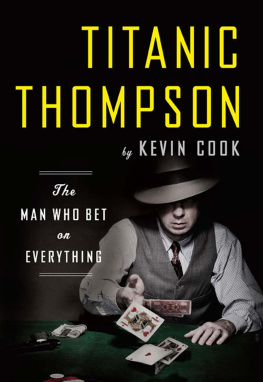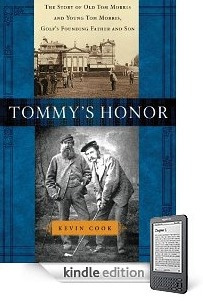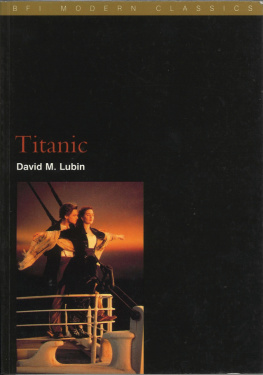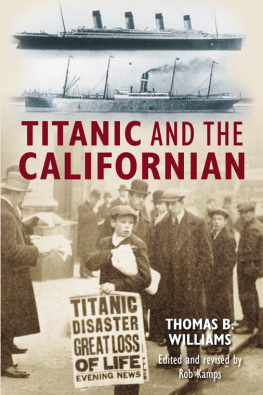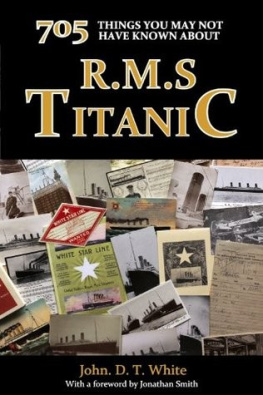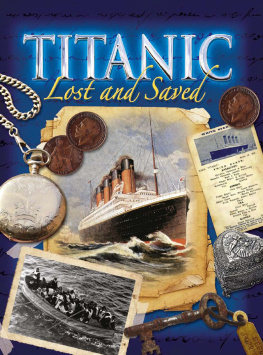TITANIC THOMPSON
The Man Who Bet on Everything
K EVIN C OOK
W. W. NORTON & COMPANY
NEW YORK LONDON
Copyright 2011 by Kevin Cook
All rights reserved
For information about permission to reproduce selections from this book, write to Permissions, W. W. Norton & Company, Inc., 500 Fifth Avenue, New York, NY 10110
Library of Congress Cataloging-in-Publication Data
Cook, Kevin, 1956
Titanic Thompson: the man who bet on everything / Kevin Cook.1st ed.
p. cm.
Includes bibliographical references.
ISBN: 978-0-393-08059-9
1. Thomas, Alvin Clarence, 18921974. 2. GamblersUnited States
Biography. 3. GamblersPsychology. 4. Gambling. 5. Compulsive behavior.
I. Title.
HV6713.C66 2011
795.092dc22
[B]
2010024527
W. W. Norton & Company, Inc.
500 Fifth Avenue, New York, N.Y. 10110
www.wwnorton.com
W. W. Norton & Company Ltd.
Castle House, 75/76 Wells Street, London W1T 3QT
For Cal & Lily
always 2 p.m.
Is it wrong to gamble, or only to lose?
Sky Masterson, Guys and Dolls
CONTENTS
TITANIC THOMPSON
PROLOGUE
H E BLEW INTO TOWN LIKE A ROGUE WIND THAT LIFTED girls skirts and turned gamblers pockets inside-out. Tall and thin with a bland mask of a face, he had close-set eyes that looked a little dead, at least until he offered you a bet. Then those dark eyes sparked and he smiled like he had good news.
Are you a gambling man? hed ask. Because I am.
Alvin was his name, but nobody called him that. They called him Titanic.
Titanic Thompsona made-up name for a self-made man who won and lost millions of dollars playing cards, dice, pool, golf, horseshoes, and anything else he could think of to bet on. He also killed five men. But theyd all tell you they had it coming. He also married five women, each one a teenager on her wedding day. Titanic liked his women young and pretty, his cars big and fast, his suckers rich and gullible. He spent fifty years roaming Americas back roads, living by his wits and reflexes, until America changed and there was no more room for such a man.
I N THE YEARS BETWEEN world wars, Titanic Thompson motored from town to town in a nickel-plated, two-ton Pierce-Arrow, the same car Babe Ruth, Franklin Roosevelt, and the shah of Persia favored. He carried his tools in the trunk: left-and right-handed golf clubs, a bowling ball, horseshoes, a shotgun, and a suitcase full of cash. During his first twenty years on the road he crossed paths with Harry Houdini, Al Capone, Howard Hughes, Minnesota Fats, and Jean Harlow. Still he managed to remain a cipher to the public. Damon Runyon wanted to write about him, but Titanic told him to forget it. He said, Mine aint the kind of work publicity helps. So Runyon based a character on himSky Masterson, the hero of Guys and Dolls .
Professional gamblers still talk about Titanic Thompson. They say that he threw a watermelon over a three-story building, that he pulled Capones pants down, that he beat Ben Hogan playing golf right-handed and then turned around and beat Byron Nelson left-handed, that he survived the sinking of the Titanic by sneaking into a lifeboat dressed as a woman. Only the watermelon story is true. But plenty of other Titanic tales are gospel. He hunted quail by throwing rocks, knocking the birds out of the air. He tricked Capone out of five hundred dollars and double-crossed Arnold Rothstein, the crime boss who fixed the 1919 Black Sox World Series. He hustled country-club golfers for twenty thousand a hole while Hogan and Nelson were earning ten thousand a year. He once drove a golf ball more than five hundred yards.
Theres a true story to his name too. In 1912, a few weeks after the unsinkable Titanic sank, taking 1,517 souls down with her, a rangy teenager in a brown suit stepped into Snow Clarks pool hall in Joplin, Missouri. He proceeded to beat every player in the place, then asked, Whos the best cue in town? That would be Snow, the pool players said. Snow Clark could run the table as fast as you could blink.
Where do I find him?
Right over there.
Alvin from Arkansas moseyed over and introduced himself. In an Ozarks twang that sounded half-dim, he challenged the pool-hall owner to a game for five hundred dollars. That was enough to get Clarks attention. In 1912, a fellow could live for a year on that much money, or live like a prince for a couple of months, feasting on one-dollar steak dinners, with pie and ice cream on the side. Young Alvin did the latter after he ran the table on Snow Clark.
On his way out he noticed a sign Clark had posted in the window: $200 to Any Man Who Jumps over My New Pool Table . The table was nine feet long and four and a half feet wide. To clear it, a jumper would have to hurdle a fifty-four-inch surface that was thirty inches off the flooran Olympic-caliber jumpbefore crashing down on the far side. I can do it, Alvin said. I can outjump a herd of bullfrogs. Clark and the others laughed. Even if the kid somehow cleared the table, hed break his leg or arm or skull on the landing.
Alvin walked out, leaving them wondering if they had offended the boy by laughing at him. He returned ten minutes later dragging a mattress hed bought at a fleabag hotel. He positioned the mattress beside the pool table, walked around to the other side, took a running start, and sprang into the air. According to an eyewitness, He leaped headfirst across the table, did a flip and landed on his back on that mattress.
As Alvin collected his winnings, someone asked Snow Clark the strangers name. I dont rightly know, but it ought to be Titanic, Clark said. He sinks everybody.
After his christening in that smoky poolroom, the young hustler hit the road. Ahead lay more adventures, bigger money, romance, and violence, and on that road he would invent a vocation. Titanic Thompson would be Americas original proposition gambler, always on the move, one step ahead of his victims and the law.
H E WAS BORN A LVIN C LARENCE T HOMAS IN 1892. Thomas , not Thompson , not yet. He grew up poor in a log cabin on a dirt road in the Ozarks. There was no shame in that, at least the dirt-road part of it, since there were only ten miles of paved roads in the United States. In 1892, most of the countrys sixty-five million citizens lived quietly in the wide spaces between cities. But the American century was coming, bringing new and surprising events. In the year of Alvins birth, the U.S. immigration station on Ellis Island opened, Lizzie Borden gave her parents forty whacks, and nine boys at the YMCA in Springfield, Massachusetts, played the first game of a sport called basketball (final score 10).
Alvin drew his first breath in Monett, Missouri. According to family lore, his father was playing poker in a saloon that night. Lee Thomas was tall with a soft voice. He got loud only when he was flush or drunk, and he was said to be both on the night his son was born, so he kept on playing, sipping from a flask of what he called his hollerin whiskey. Lee didnt go home until the next day, Thanksgiving Day, the thirtieth Thanksgiving since President Lincoln declared it a national holiday back in 1863, and Lee wasnt at all thankful when he saw the newborn at his wifes breast. A few weeks later, on one of those winter mornings when you could see your breath indoors, he packed a cardboard satchel and went to the shelf where his wife kept her pin money in a sugar bowl. Stepping softly, he picked her last five dollars out of the bowl. His wife never saw him again.

